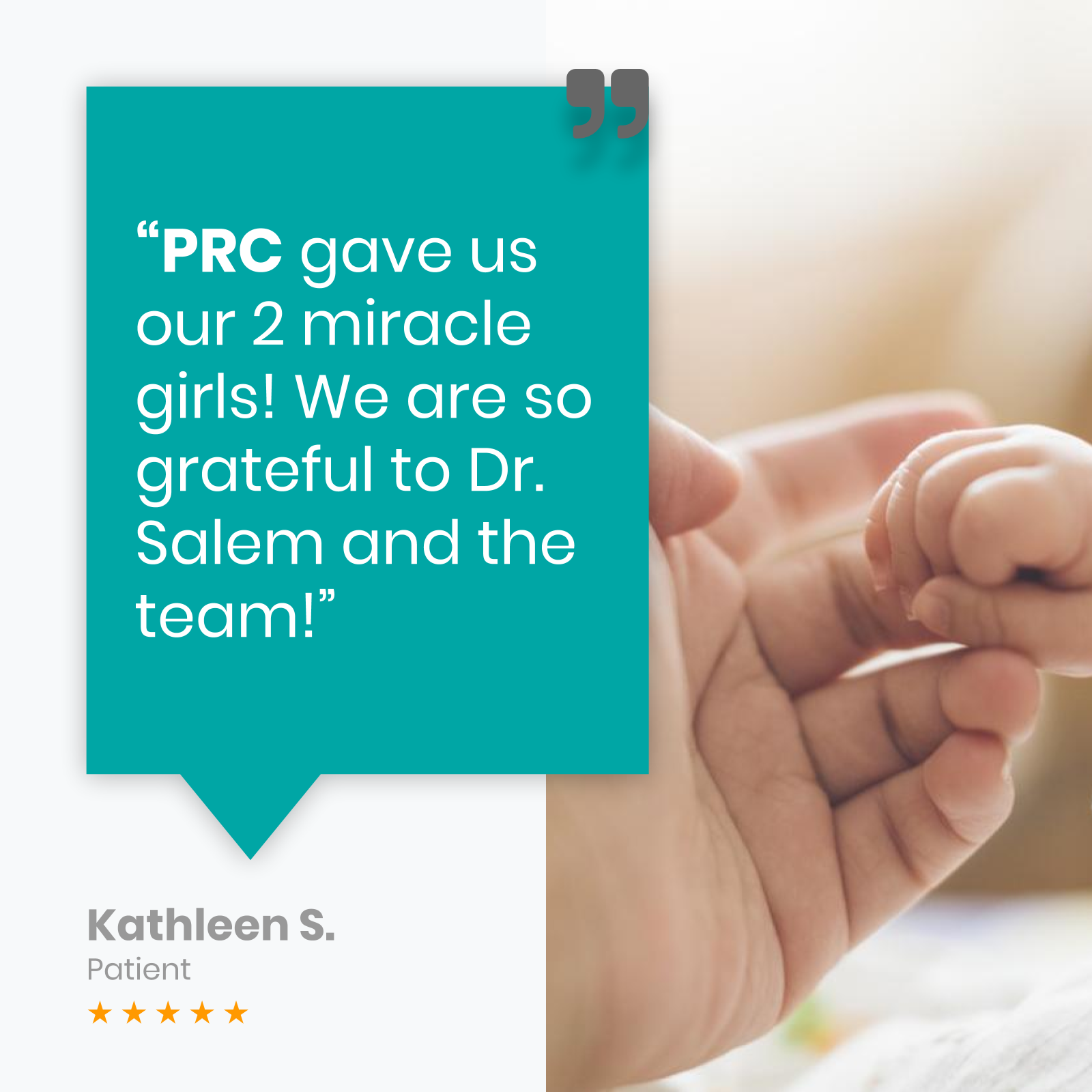Facts About Female Infertility
If you’re like many women, you probably thought that the decision to start a family would mainly be based upon finding the right partner, achieving financial stability, or even just being emotionally ready to take on the responsibility. Pregnancy should be the easy part. After all – people accidentally get pregnant all the time, right?
For many women, becoming pregnant is considerably more difficult than expected or hoped. According to data from the Centers for Disease Control and Prevention in the United States, approximately 13% of women aged 15-49 experience either fertility challenges or difficulty carrying a pregnancy to term. Fortunately, recognizing fertility concerns early will help you overcome the conception struggles you may experience.
What is Infertility?
The fertilization process is initiated when the ovaries release a mature egg into the fallopian tube, and it is then penetrated by sperm. Pregnancy occurs when the fertilized egg travels down the fallopian tube into the uterus, where it attaches to the uterine wall. Impediments to this process are fertility challenges. When a woman does not conceive after approximately one year of attempted pregnancy (6 months for women over 35), she is considered infertile.
Women carry a finite number of eggs, released approximately every month after she reaches puberty (generally by age 12 or 13, though it can be either earlier or later). Fertility typically peaks between ages 20 and 30 and diminishes as she approaches 40 and beyond.
While it is normal to experience declining fertility from the mid-to-late 30s, health, environmental, and lifestyle factors might contribute to reproductive obstacles. These include, but are not limited to:
- Obesity. There are several issues associated with obesity that contribute to female infertility. Polycystic ovary syndrome (PCOS) occurs in a significant percentage of overweight and obese women – some estimates place the numbers between 40% and 80%. (Though obesity is also a recognized side-effect of PCOS.) Obesity also alters hormonal production. Excessive adipose tissue can trigger a sequence of physiological events that result in suboptimal ovulatory function and elevated rates of miscarriage.
- Medical disorders. Some illnesses – along with the medications used to treat them – negatively affect fertility. Conditions like diabetes, hyperthyroidism, and lupus can complicate pregnancies and elevate the risk of miscarriage. Certain corticosteroids and non-steroidal anti-inflammatory drugs (NSAIDs) used to treat rheumatic conditions can diminish female fertility when taken in regular, heavy doses.
- Structural abnormalities. These include conditions like endometriosis (the growth of endometrial-type tissue outside of the uterus), fallopian tube blockage, scar tissue, uterine fibroids, polyps, and congenital malformations of the uterus.
- Infections. Sexually transmitted infections (STIs) are significant contributors to female infertility. They can cause pelvic inflammatory disease, as well as uterine scarring.
- Environmental toxins. If you live in a region where you are continually exposed to certain pesticides, heavy metals, cigarette smoke, and other environmental pollutants, you may experience reproductive problems. Exposure to phthalates – a chemical group used in household plastics and personal care items like shampoo and hair gel – might contribute to miscarriage and reduced in vitro fertilization (IVF) success rates.
The fertility specialists at PRC help potential parents significantly increase their odds of successful conception and childbirth. With a combination of next-generation treatments and technologies and personalized, whole-person wellness strategies, we offer reproductive guidance and support designed to address and overcome a host of fertility challenges.
Treatments
Pacific Reproductive Center has been successfully aiding conception for over two decades. We optimize the conditions of fertility treatment to give every potential parent the greatest chance of successful childbirth.
Resources
We ensure that every patient fully understands their medical condition and treatment options available to them. We understand each patient is unique so we help guide you through the best option to support your own fertility journey.
Looking for the Best Fertility Clinic in Southern California?
Pacific Reproductive Center has four convenient locations throughout Southern California, making it easy for patients to receive quality care close to home. Each IVF fertility center has an on-site lab, next-generation services, and state-of-the-art equipment.
Whether in Glendale, Torrance, Irvine, or Corona, our world-class fertility doctors can help you build the family you’ve always wanted.
3720 Lomita Blvd, Suite 200 Torrance, CA 90505
116 E. Broadway, Suite 300 Glendale, CA 91205
10 Post Irvine, CA 92618
381 Corporate Terrace Corona, CA 92879




